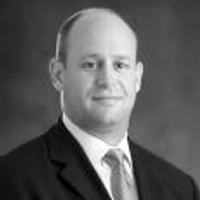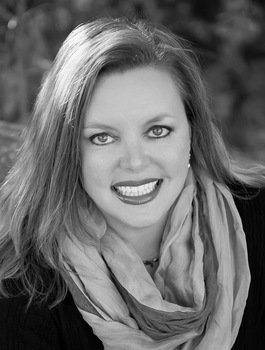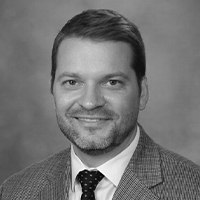Cochlear Implant Futures Forum: Awareness of Cochlear Implantation
Globally, it is estimated that only one in twenty who could benefit from cochlear implants* (CI) have one. Most other health treatments have internationally accepted standards of care that inform patients and health care practitioners when specialist referrals and treatment options should be considered.
This is a gap in the field of adult cochlear implantation that is addressed by a new publication titled Unilateral Cochlear Implants for Severe, Profound, or Moderate Sloping to Profound Bilateral Sensorineural Hearing Loss. A Systematic Review and Consensus Statements. A statement from that publication identified that ‘Awareness of cochlear implants among primary and hearing healthcare providers is inadequate, leading to under identification of eligible candidates. Clearer referral and candidacy pathways would help increase access to cochlear implants.’*
Brian Kaplan: Lack of awareness could be the biggest hurdle we have in treating our patients today. We need to have clear referral and candidacy pathways to increase access to CI. Regardless of the market, we know that under 5% of patients who today would benefit from a CI are able to receive one. That often is not secondary to funding constraints, but to lack of awareness and education and how we create the pathway to referral for them. Unlike other fields like hypertension and diabetes with well-established pathways of care, we have not yet established this when it comes to hearing loss and its remediation.
That's part of the focus of this discussion - to bring together a group of the world's experts to deliberate what should that pathway look like and how to best work with our professional partners to achieve this level of awareness across the globe.
I would like to invite Barbara Kelley to open the discussion on awareness of CI for adults from the patient’s perspective.
Barbara Kelley: People with hearing loss want to stay active and engaged and that means treating hearing loss. They deserve to have solid information about all the options, including cochlear implants when hearing aids are no longer beneficial. Unless you’re really in tune to hearing health, most people either don’t know about CIs or have misconceptions about them and whether or not they are candidates. Every hearing loss and individual is different, but health care providers should give basic information about CIs as a possible option.
Brian Kaplan: Does anyone have comments about educating healthcare professionals regarding candidacy criteria? I’ll open it up to our panel members for their opinion.
Barbara Kelley: I would not expect my primary healthcare provider to know the candidacy criteria for cochlear implants, but I would expect him or her to know about CIs as an option. That would communicate that CIs are a best practice in treating hearing loss and my primary care provider is on top of the latest treatments. That would give me confidence to then go to a hearing healthcare provider to see if I was a candidate. Everyone wants hope and no one should be missing possible options for treating hearing loss.
Howard Francis: We’re no longer at a time where only individuals with profound hearing loss would be referred. Individuals with residual hearing loss can be referred and have very good outcomes, and we have success in preserving hearing where it's appropriate. I think also it’s important to create a feeling of safety, that when a patient is referred that it will be an information-gathering experience - it's not a done deal that someone is referred and will have surgery.
Allison Biever: In terms of referring audiologists, I think there may be a fear of referring too early. I'm saddened when I see a patient who could have benefitted from this technology 5 to 10 years ago. Looking at the population of patients that you're seeing, knowing that their average threshold is 60 dB HL, if you’re a dispensing audiologist and their word recognition score is 60% don't be hesitant to refer on. Just be aware of the changes in the guidelines.
Brian Kaplan: I’d now like to hand this over to Mathew Carlson for his thoughts on research and raising the level of awareness.
Mathew Carlson: One of the most staggering and most quoted excerpts from any paper is the data that demonstrates there's probably about 1.5 to 2 million people who would qualify in the US for CI criteria. There's also data to suggest that the longer the delay of hearing loss to the time of implantation equals poorer outcomes.
In an independent survey looking at the current awareness of hearing loss among the general US population and healthcare professionals, it was found that despite healthcare professionals agreeing there needs to be a line of normal and abnormal hearing, only a small percentage of people knew what normal hearing was. You compare that to vision or any of these other common benchmarks in healthcare in general, hearing is behind. When you look at the frequency at which healthcare providers recommend hearing tests and the frequency at which consumers in the general US population over 50 pursue hearing testing, it's de-prioritised comparatively. The general US population is substantially more likely to get eye tests, teeth check-ups, cholesterol checks and even more likely to take their dog to the vet than they are to get their hearing checked on an annual basis. We are probably taking better care of our pets than ourselves.
Brian Kaplan: Next, we will hear from Regina Presley on how the Consensus Paper applies in clinics day-to-day.
Regina Presley: Ultimately the Consensus Paper provides a guide for best patient care while ensuring that equal care is provided to all recipients. Every patient should obtain the same level of care regardless of where they receive their service. The consensus statement has been based on evidence, allowing us to be confident in its implementation.
So, how do we plan to apply this in our clinic and what are we doing to create awareness? Our focus is in multiple areas. We are focusing on the patient as well as student education. We will be focusing on increasing the knowledge of colleagues and other healthcare professionals. We are using a variety of avenues and trying to be successful in any way we can through social media, to webinars, and publications. One of the things I would encourage everyone to do is to keep the impact of change on our teams in the forefront of our mind. Remember, it takes at least seven times to hear something before someone absorbs the information. Apply this to both your team education and your outreach. Once is not enough.
Brian Kaplan: What would be your advice on counselling patients that are no longer getting benefits from superpowered hearing aids?
René Gifford: I actually believe that superpowered hearing aids should come with a warning label. The issue is that in the US, current indications for CI reference moderate sloping profound hearing loss. Superpowered hearing aids are designed for severe-to-profound audio metric thresholds, and by that point we know that cochlear implants are more effective. We're no longer in a situation where we're trying to prove their effectiveness - we know they’re effective, we know they’re safe. We can say with confidence that cochlear implantation will give you better auditory outcomes than hearing aids. What I always try to address in this case is talking about cochlear implants from day one and talking about it is as just a continuum of your hearing healthcare. We often tend to talk about CI’s as failing hearing aids, but that’s not really the case - there's this whole entire progression and continuum and there are areas of overlap, as well.
Brian Kaplan: What are your thoughts on addressing geographical challenges for patients?
Allison Biever: We see patients who live hundreds of miles from implant centers. Referring audiologists are reluctant to refer on for an evaluation because they don't want their patients to travel far, only to be told they may not be a candidate. We recommend that the screening be done locally. The dispensing audiologist forwards on the audiogram, we review it, and if we think this is an appropriate referral, we encourage the referral to our center. Then we evaluate the patient, and most of the time as we discussed earlier, they're deemed a candidate. It is unlikely they are told they are not a candidate. However, in the small percentage of times they're told they're not a candidate, they are extremely grateful to have learned of the technology. We usually tell them that they could be a candidate down the road. I feel very strongly about that. I don't say no, I say not at this time. The patient feels there is hope and if their loss continues to digress, they are aware of the technology.
Brian Kaplan: How do you raise the level of awareness and increase access for patients in these various geographies?
Howard Francis: We need to normalize cochlear implants as part of the continuum of hearing healthcare. Not just for the average person out there or a potential patient, but for our colleagues in audiology and our primary care physicians. That story must be told and we're not doing enough of that. We really think it's a community responsibility. I think the guidelines are critical. Sharing the guidelines are a minimum, and then having them integrated into the educational preparation of audiologists and even our primary care physicians.
Brian Kaplan: What is one key takeaway message regarding how to think about adults with severe to profound hearing loss?
René Gifford: Just refer them first for an evaluation. They're absolutely within the candidacy. If you have a patient who is completely caption dependent with their television viewing, texting versus phone calls, who is incrementally withdrawing from more of the auditory dependence tasks, refer that person. Even though they might be getting some benefit from hearing aids, it's very likely they're going to get so much more benefit when they combine an implant with a hearing aid on the other ear.
Regina Presley: Sometimes we get weighed down with what are the rules. If you have a patient reporting they're not getting benefit, if they tend to be struggling, if their audiologist is saying they can't seem to satisfy this patient with hearing aids, they're probably somebody to refer. If you want to refer a patient do not worry if they do not qualify for a cochlear implant. It's okay to say, ‘I would like to refer you, I'm not sure if you're a candidate for a cochlear implant, however, I'm going to send you to someone who specializes in CI and we're going to let this serve as a baseline to give you a better indication of what your options are moving forward.’
Matthew Carlson: I would say listen to the patient. Even more so than the audiogram. A lot of times people will be borderline on your audiogram, they might be around 60 or 70db or something like that, but they're telling you a story that suggests they're really deteriorating in noise. A lot of those patients are still candidates. The patients who gives you those red flags, particularly in background noise, refer them. The age-old advice of listen to the patient.
Barbara Kelley: Listen to your patients. Ask them about their lifestyles, about hearing needs and situations and what they expect from devices. I hear anecdotal stories of people who know about cochlear implants and want to ask questions and see if they are a candidate by asking their audiologists. I’ve heard that the audiologist sometimes dismisses the idea. Often, the motivated patient will find another audiologist who will help explore the possibility of a CI. So, that's a key message to take away -- if you get a tenacious patient, armed with solid information, they're going to keep going until they have all their questions answered and, in some cases, get what they want.
Allison Biever: Refer earlier than you think you might need to. The audiogram doesn't tell the whole picture, but patients are incredibly happy to learn about this technology. Even the small percentage of the time when you tell them they're not quite yet a candidate.
For more information head to: www.adulthearing.com.
*All the statements are taken from Craig A. Buchman, et al., Unilateral Cochlear Implants for Severe, Profound, or Moderate Sloping to Profound Bilateral Sensorineural Hearing Loss. A Systematic Review and Consensus Statements. JAMA Otolaryngol Head Neck Surg. doi:10.1001/ jamaoto.2020.0998 Published online August 27, 2020.
© Cochlear Limited 2021. All rights reserved. This content is meant for professional use. If you are a consumer, please seek advice from your health professional about treatments for hearing loss. Outcomes may vary, and your health professional will advise you about the factors which could affect your outcome. Always read the instructions for use. Not all products are available in all countries. Please contact your local Cochlear representative for product information. Views expressed are those of the individual. Consult your health professional to determine if you are a candidate for Cochlear technology.








